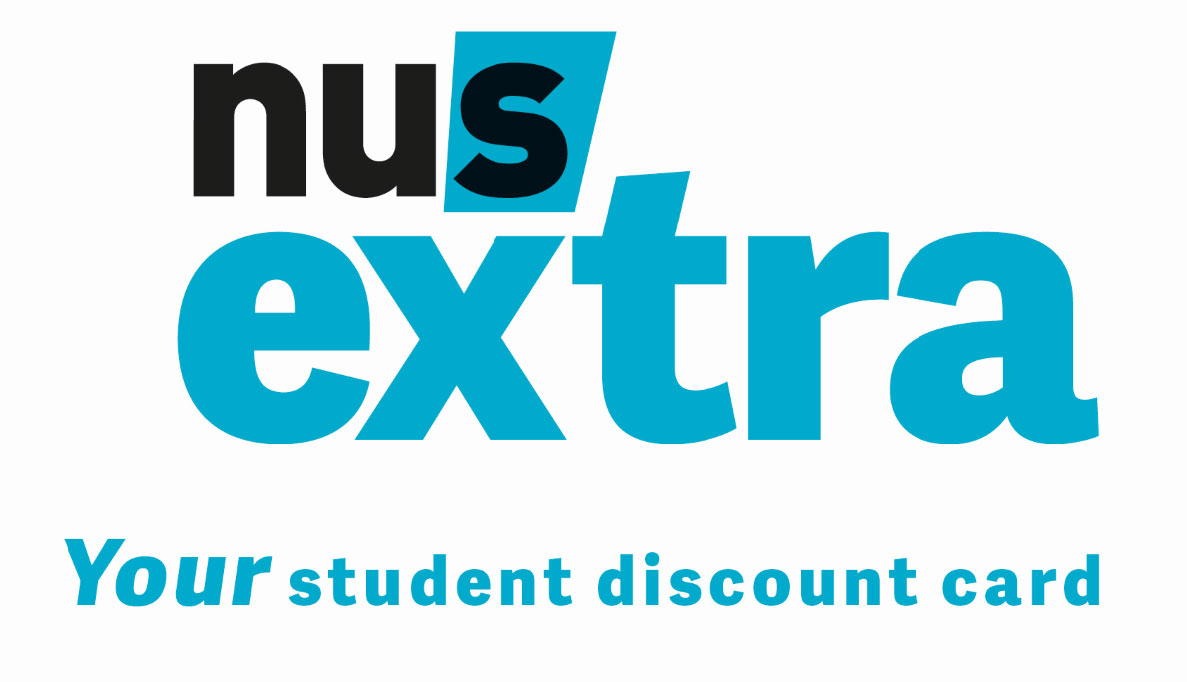Overview
If you want to make a difference to people’s lives as a social worker, but haven’t got the qualifications for this job role, Access to Higher Education Diploma (Social Work) will provide you with the opportunity to get back into education, qualify and turn your career goals into a reality.
Access to Higher Education Diplomas are designed for learners who have been out of education for an extended period of time that wish to return to study. They have been created as alternatives to traditional qualifications (e.g. A-levels) and equip students with the knowledge and skills to tackle a university study programme with confidence. Completing an Access to HE Diploma is a long-established and accepted route to university and the majority of UK universities welcome applications from students working towards, or holding, this qualification. It is important to check the entry requirements of the universities you wish to apply to, however, as all university admission criteria differ.
Not only could Access to Higher Education Diploma (Social Work) be your ticket to university, but it will also prepare you for study at a higher academic level. Modules on academic writing skills and independent research will teach you to organise your time, write with relevance and summarise for academic purposes, whilst subject-specific units will provide you with the entry knowledge you need to excel on any social work or related degree programme.
Upon successful completion of this course, you will have an excellent grounding in social policy, sociology and the core ideas at the heart of social work. As a result, you will have an array of social work and related degree courses at your fingertips. Access to Higher Education Diploma (Social Work) is the first step in your journey towards higher education and, potentially, a successful career in social work.
Why study an Access to Higher Education Diploma with Highbury College?
Once you have enrolled onto your Access to Higher Education Diploma (Social Work), you will be given 24/7 online access to interactive and easy-to-follow materials that cover a range of topics, including: poverty and health, sociology, morals and ethics in social work and the foundations of social policy. As part of your study programme, you will also receive support and guidance on your university application so that you can get the most from your diploma.
As this is a distance learning course, our Access to Higher Education Diploma (Social Work) is flexible and allows you to study at the pace that suits you. So, don’t worry if you have work commitments or other responsibilities that take up your time. Our Access to Higher Education Diplomas have been designed with you and your busy schedule in mind.
Nervous about taking this step towards your future? You needn’t be. You will have a dedicated personal tutor who will be available to contact for assistance. You will be supported every step of the way.
The amount of time required to complete this course is approximately 600 hours and you’re free to do this in as little as 6 months or over 18 months if you require extra time.
If you’re worried about funding this course, you may be eligible for an Advanced Learner Loan. The minimum loan you can get is £300 and you won’t need to pay anything back until you’re earning at least £25,000 per annum. If you go on to complete an undergraduate degree following your Access to Higher Education Diploma, you won’t have to pay the loan back at all.
Modules for this course
Unit 1: Academic Writing Skills
On completion of this unit you will:
- Be able to write with relevance in responding to an academic task.
- Know how to interpret and discuss ideas and issues in responding to a set, academic writing task.
- Be able to summarise for academic purposes, selecting key points, information or central ideas.
Unit 2: Preparing a Written Assignment
On completion of this unit you will:
- Understand how to use key information sources.
- Understand why sources are acknowledged and referenced.
- Understand a range of reading strategies.
- Understand note-making methods.
- Understand how to plan draft and produce a written assignment.
Unit 3: Health and Wellbeing
On completion of this unit you will:
- Understand the relationship between resilience and mental wellbeing.
- Understand the expression of feelings and emotions and how these could be managed.
- Understand how mental wellbeing can be supported and managed.
Unit 4: Introduction to Psychology
On completion of this unit you will:
- Understand the importance of research in psychology
- Understand the main approaches in psychology.
- Understand ethical issues in psychological research.
Unit 5: Understanding Crime and Deviance
On completion of this unit you will:
- Understand explanations of crime and deviance.
- Understand theories of crime and deviance.
- Understand perceptions of crime and deviance
Unit 6: Introduction to Social Work
On completion of this unit you will:
- Understand the historical development of social work.
- Understand the role of the social worker.
- Understand how social work services are organised in the statutory, voluntary and independent sector.
- Understand the main purposes and values of social work.
Unit 7: Introduction to Cognitive Psychology
On completion of this unit you will:
- Understand research in an area of cognitive psychology.
- Understand how the findings of research into cognitive processes can be applied to real-life issues.
Unit 8: Sociology of the Family
On completion of this unit you will:
- Understand changes in family structure.
- Understand sociological explanations of the family to include Functionalist, Marxist, feminist and interactionist views.
Unit 9: Contemporary Issues in Social Policy
On completion of this unit you will:
- Understand current issues in social policy
- Understand current legislation in relation to current issues in social policy.
- Understand the economic context of a contemporary issue.
Unit 10: Morals and Ethics in Social Work
On completion of this unit you will:
- Understand ethics and ethical issues in social work practice.
- Understand moral dilemmas and social work practice.
Unit 11: Sociology of Health
On completion of this unit you will:
- Understand concepts and models of health.
- Understand the social construction of health and ill health
- Understand alternative approaches to health.
Unit 12: Combating Prejudice and Discrimination
On completion of this unit you will:
- Understand theoretical explanations for prejudice and discrimination.
- Understand legislative responses to discrimination and prejudice.
- Understand community initiatives in combating discrimination and prejudice.
Unit 13: Abnormal Psychology
On completion of this unit you will:
- Understand the difficulties faced by psychologists in the definition and diagnosis of abnormal behaviour.
- Understand a psychological disorder.
- Understand possible treatments used to treat people with psychological disorders.
Unit 14: Understanding Poverty
On completion of this unit you will:
- Understand definitions of poverty.
- Understand ways of measuring poverty.
- Understand the extent of poverty in contemporary Britain
- Understand explanations of poverty
Unit 15: Social Work Methods
On completion of this unit you will:
- Understand the concept of planned intervention.
- Understand the purpose and principles of social work assessments.
- Understand the range of methods used in social work assessments.
- Understand social work intervention methods.
Unit 16: The Brain & Nervous System (Psychology)
On completion of this unit you will:
- Understand the major sub divisions of the nervous system.
- Understand the structure and function of glial cells and neurons.
Unit 17: Personal Social Services
On completion of this unit you will:
- Understand the varying nature of social work provision for children and adults.
- Understand the roles of the voluntary and private sector in the provision of welfare.
- Understand the welfare needs of various groups.
Unit 18: Psychobiology of Stress
On completion of this unit you will:
- Understand common physiological and psychological responses to stress.
- Understand the relationship between stress and illness.
- Understand methods used to reduce stress
Unit 19: Equality of Opportunities in Practice
On completion of this unit you will:
- Understand the main aspects of the legal framework which identify rights and responsibilities about equality of opportunities.
- Understand how to promote equality of opportunities, inclusiveness and diversity in the workplace.
Requirements
To start an Access to Higher Education Diploma you will need an English and maths GCSE at grade A - C/ 4 - 9 or a Functional Skills Level 2 qualification in both subjects.
Access to Higher Education Diplomas fulfil the entry criteria for range of different university courses and are suitable for the UCAS application process. However, it is advantageous to check the requirements of each establishment that you want to apply to before submitting your application in order to avoid disappointment. Admission criteria may include, but is not limited to:
- Having a set number of credits attained at Merit or Distinction level
- Attendance and success at a face-to-face interview at chosen university
- Passing the university’s proprietary literacy and numeracy assessments
- Successful completion of mandatory work placements or work experience
Learners must also undertake their own independent research to ensure that their diploma is properly specified, which will give them the best possible chance of getting into university. The student is responsible for their own research and they should begin this as soon as possible after starting the course. Highbury College will not accept any responsibility or liability if any Access to Higher Education Diploma student fails to secure an offer from a Higher Education institution.
Assessment
Access to Higher Education Diploma (Social Work) is modular and composed of graded and ungraded units that allow you to quickly and easily absorb the course material in bitesize chunks. At the end of each unit you will complete an assignment which your tutor will evaluate and give you feedback on. The feedback is aimed to show you how effective your piece of work is, its quality, and how you can improve in the future. These assignments are important to your learning process as they are signposts of your progress throughout the course.
In order to achieve this qualification, you will need to attain a total of 60 learning credits. 45 of these will be taken from graded units for the subjects with academic content, whilst the other 15 units are ungraded units relating to study skills.
In order to gain your diploma you need to successfully pass all units within the course.
Important notice: Online access is required in order to access your course content and submit your assignments.
AIM Qualifications and Assessment Group Access to Higher Education Diploma (Social Work)
Following successful completion of this diploma you will be awarded a QAA recognised Access to HE Diploma at level 3 (QAA ref:40012578). This diploma has been assigned 60 credits.
AIM Qualifications and Assessment Group

AIM Qualifications and Assessment Group is a national Awarding Validating Agency, regulated by the Quality Assurance Agency for Higher Education (QAA) and Qualifications Wales, to develop, maintain and award nationally recognised qualifications.
AIM Qualifications and Assessment Group work proactively with employers, training providers, colleges, universities, schools and voluntary and community organisations to offer vocational credit-based qualifications, Access to Higher Education Diplomas and quality assured Customised Accreditation that enables learners gain employment or to progress into further learning and Higher Education. AIM Qualifications and Assessment Group also Quality Endorse organisations internal training and skills delivery.
Developing your career
Many social work graduates go on to become social workers, with employers ranging from the NHS and charity organisations to prisons. However, there are other jobs a degree in social work could lead to, such as:
- Family support worker
- Adult guidance worker
- Careers adviser
- Youth worker
- Counsellor
- High intensity therapist
No matter which career path you choose to pursue, Access to Higher Education Diploma (Social Work) will equip you with the skills and knowledge you need to take your study further and invest in your future.
Course Fees
Price £3,022.00Payment methods
(No repayments until your salary reaches £27,295)
Further Information
Course ref: 40012578
Course starts: Anytime
Notional Learning Hours: 600
Modules: 20
GET YOUR NUS EXTRA CARD


